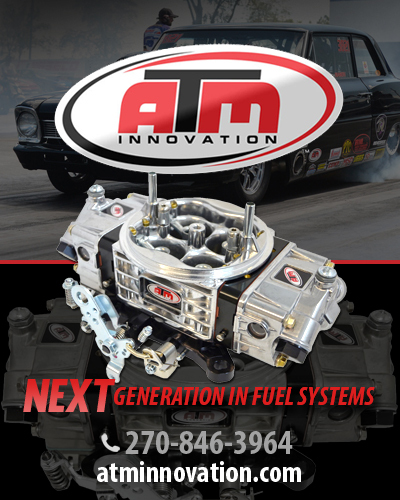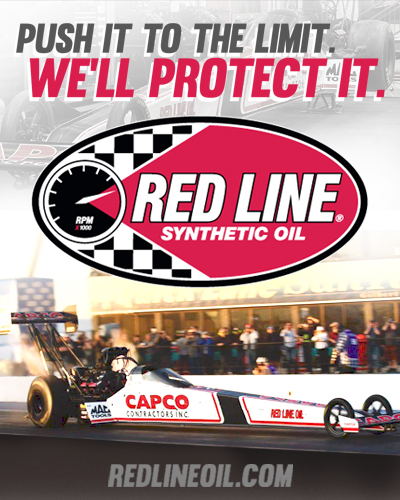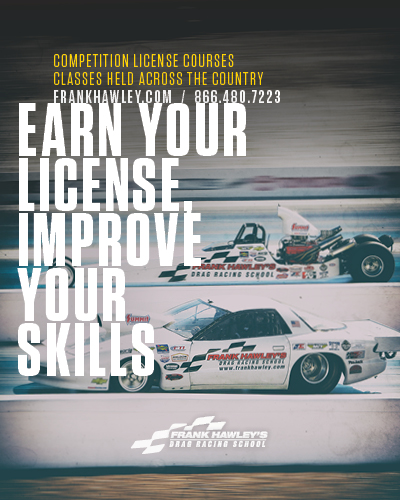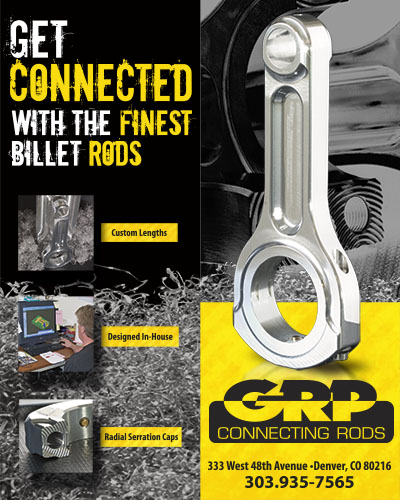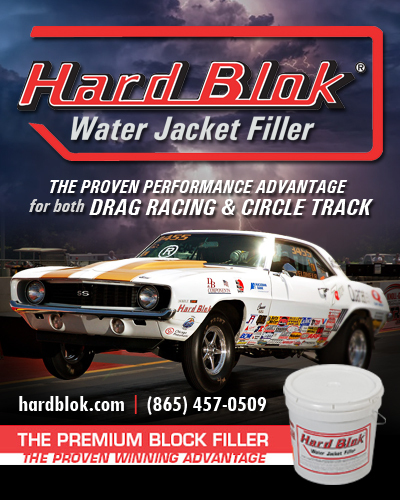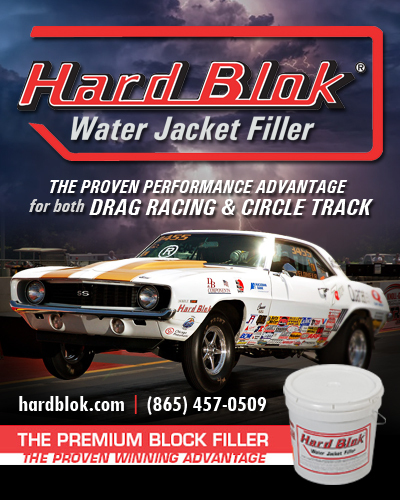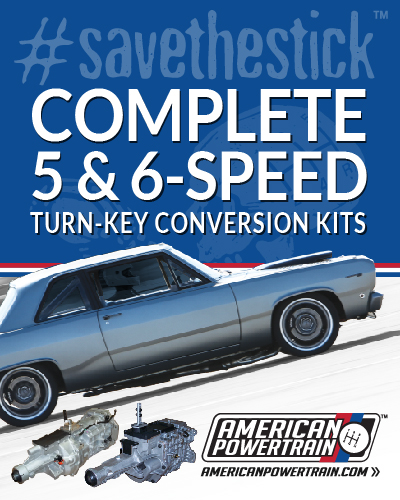PROGRAM ENCOURAGES DRIVERS TO GET REAL WITH EACH OTHER
Shirley Muldowney didn't mince words.
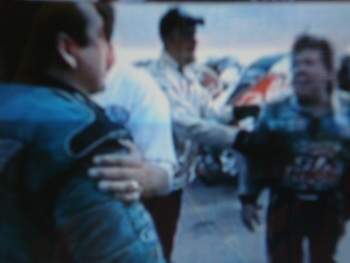
She has called various promoters "carny," "crook," "cheapskate," and "fruitcake." She didn't curtsy to the racer who beat her and tell the audience what a swell gentleman and fine driver he is. She was angry she lost, especially if her opponent tried some funny business or pulled some shenanigans at the starting line. She let him have it and didn't feel one bit of shame. The way she looked at it, he was taking money from her pocket.
The men of the sport tolerated her as a notorious novelty back then. She was branded as a malcontent and . . . well, that name people always call decisive, strong-minded women. But Cory McClenathan, also one of the most intense competitors the NHRA ever has seen, often wasn't fond of making nice right after losing a round, either. They developed "reputations" for being "edgy." And for the past decade or so, that has been code for discord, for undesirable behavior.
It's curious, though, that the pendulum has swung back in favor of being honest, being emotional, and generating some excitement. That's what media expert and coach Bill Stephens was urging NHRA professional drivers to do at his Ultimate Garage Media Workshop Saturday during the recent Mac Tools U.S. Nationals at Lucas Oil Raceway at Indianapolis.
Shirley Muldowney didn't mince words.
 Ed "Ace" McCulloch's words still ring true and telling: "It's just getting so you can't hit a guy anymore." Violence, even serving someone a knuckle sandwich, might not be ideal. Nevertheless, on-air media personality and driver coach Bill Stephens, has been lobbying NHRA drag racers to show some spunk.
Ed "Ace" McCulloch's words still ring true and telling: "It's just getting so you can't hit a guy anymore." Violence, even serving someone a knuckle sandwich, might not be ideal. Nevertheless, on-air media personality and driver coach Bill Stephens, has been lobbying NHRA drag racers to show some spunk.He told a gathering of about 30 racers during the Mac Tools U.S. Nationals at Indianapolis recently, "You are the primary delivery system of the energy that drivers the sport. You should be putting the listener in the car or on the bike with you. Let them know how intense those few seconds are on the track and what you’re doing to beat the other guy . . . And that there's no feeling in the world to compare with what it’s like to win -- even if it’s only the first round -- and how much it sucks to lose."
He shared four drama-drainers that almost every racer is guilty of committing in top-end interviews:
1. "I'm not racing the other guy. I'm racing the track."
2. "I don't know who I'm racing next round and it doesn't really matter."
3. (After an early round-win) "I haven't won anything yet."
4. "That's racin'."
That first remark, Stephens said, "would be like [Indianapolis Colts quarterback] Peyton Manning saying he isn't playing against the New England Patriots, that he's playing against Gillette Stadium. How many people come to see the lane race? It might be true, but I don't want to hear it.
"If I had something I wanted," he said, "I'd kick, scratch, and do whatever I had to do to keep it or do everything I could to get it back again."
The second comment, he said, is preposterous. Muhammad Ali always knew who his opponent was and who the next one would be. And it mattered to Muhammad Ali. "We're afraid to use our passion, emotions, and instinct, We've been conditioned to be politically correct," Stephens said. "Be ready to be adversarial."
Stephens expressed frustration at hearing that an early round-win means nothing because it isn't the final. "Every round that you win is something to take pride in," he said. "If it isn't, why race? And if it isn't that important to you, why should it be important to the fans or TV viewers?"
"That's racin' " is a double-edged sword. Used to express indifference (as in "Oh well, stuff happen."), it's a dull sword. But the phrase is a terrific advertisement when used to convey the excitement of driving a 7,000-horsepower dragster or Funny Car or gripping the handlebars of a Pro Stock Bike and accelerating from zero to 100 mph in two seconds -- without any real protection -- as the bike kicks up to 190-plus mph in less than seven seconds.
His message is that drivers need to suspend humility for a few seconds of TV time and share with the world just how exciting their jobs are.
"An aggressive attitude directed at winning doesn't mean personal attacks on other drivers, foolishly instigating arguments just for the sake of publicity, or just being a sore loser," Stephens said. "It means doing whatever needs to be done to gain an advantage over your opponent. It also means having a warrior's mind set which leads to an uninhibited ability to celebrate victory or reluctantly accept defeat."
Stephens is correct in telling the racers that "fans live vicariously through you." What he was saying was "Don't bore them."
She has called various promoters "carny," "crook," "cheapskate," and "fruitcake." She didn't curtsy to the racer who beat her and tell the audience what a swell gentleman and fine driver he is. She was angry she lost, especially if her opponent tried some funny business or pulled some shenanigans at the starting line. She let him have it and didn't feel one bit of shame. The way she looked at it, he was taking money from her pocket.
The men of the sport tolerated her as a notorious novelty back then. She was branded as a malcontent and . . . well, that name people always call decisive, strong-minded women. But Cory McClenathan, also one of the most intense competitors the NHRA ever has seen, often wasn't fond of making nice right after losing a round, either. They developed "reputations" for being "edgy." And for the past decade or so, that has been code for discord, for undesirable behavior.
It's curious, though, that the pendulum has swung back in favor of being honest, being emotional, and generating some excitement. That's what media expert and coach Bill Stephens was urging NHRA professional drivers to do at his Ultimate Garage Media Workshop Saturday during the recent Mac Tools U.S. Nationals at Lucas Oil Raceway at Indianapolis.
When NASCAR rewound its clock to the 1979 Daytona 500 recently, many NHRA fans were jealous that NASCAR took advantage of the interest that arose with the fistfight between Bobby Allison and Cale Yarborough. Why jealous? The NHRA, established to corral defiant, smack-talking illegal street racers in a safe environment, had plenty of people who could -- and in some cases, did -- do that.
But NASCAR harnessed the millions of new fans who got a charge out seeing fireworks at the racetrack and sweet-talked them into volunteering their devotion and deep pockets.
The consensus seems to be that spontaneous boxing match at Daytona put NASCAR on the map with mainstream America, took the stock car clan from moonshine running to Madison Avenue.
Yarborough said, "I think that people in the country said, 'These boys are real people and they do real things. I think it made a lot of fans. I think it's one of the biggest things that ever happened to the sport -- got people's attention."
Meanwhile, the NHRA, which had the perfect product (an extreme sport with plenty of personality among its drivers), stood flat-footed, not picking up on the public's thirst for controversy.
Don't think for a minute that fans didn't lick their chops when Warren Johnson took aim at Jim Head, and vice-versa, last year . . . Or when Tony and Cruz Pedregon tag-teamed John Force at the 2008 U.S. Nationals. . . . Or when Ron Capps, who always has guarded his reputation, punched teammate Whit Bazemore in the kisser. NHRA's 60-year history is rife with juicy examples throughout the decades.
Instead of beating NASCAR to the punch at exploiting the chaos, the NHRA herded its drivers into a nicey-numb nirvana.
Stephens wasn't having any of it.
"If you guys were completely honest," he told his audience of about 30 racers, "it would change the dynamics of this sport overnight -- and we're not doing it."
Stephens told them, "We need to do something to attract attention, to create a buzz. We need conflict, emotion, energy, passion. It's all up to you to do the kinds of things that are going to make [the sport] impossible to ignore. I'm not saying this needs to be professional wrestling. I'm not saying to become goons who do over-the-wall things to get attention. But it's time to take the gloves off."
Drag racing, frankly, needs that to survive.
Stephens told drivers they "need to be taking the fans, the TV audience, on the run with you. They need to see in your face what you just went through. If you're not selling the experience, the fans are going to say, 'Gee, I thought it was more exciting than that. Maybe not. Think I'll switch over to the baseball game.' If they don't think you care, then why should they? Why should they turn on the TV?"
Stephens encouraged them to use the "Three Cs: conflict, controversy, confrontation." He didn't suggest they get personal, rather he pointed out to "remember, the racer in the other lane is trying to take something away from you, and it's something you don't want them to have. You've worked hard to earn the right to race on the professional level, and if someone were trying to steal something that belonged to you, you'd fight to keep him from getting it.
"If you succeed, you need to make it clear you’re loving the fact you won what you feel belonged to you and you’re not going to make it easy for anyone else to get it," he said. "And if you fail, you need to let everyone know that next time, things will be different. You won't forget who beat you and you'll have some payback for him. Make the fans wonder what's going to happen next. You're just doing something to take your opponent out of his comfort zone."
Stephens assured any racer who might feel uncomfortable launching what might be perceived as "an attack" on a competitor. He said, "We've got a lot of room to go between where we are now and where we get to the point what we say could be construed as an insult."
Said Tony Schumacher, "I would be happy to let four people kick my a-- every week."
For the racer concerned about what his sponsors might think of a more aggressive stance, Stephens said, "You can't tell me that Corporate America doesn't understand competitive energy."
Jerry Archambeault, NHRA vice-president of public relations and communications, indicated that he, like Stephens, has encouraged drivers to use the TV exposure to tell America how terrific it is to be an NHRA drag racer. And he tried to allay fears that if they spoke up and followed Stephens' advice that they would be fined and/or reprimanded.
Pro Stock owner-driver Larry Morgan, infamous in NHRA's Glendora, Calif., headquarters for his fan-popular "You can't fix stupid" campaign several years ago, responded by saying, "That isn't what I found. I'm going to be in some deep s---. I said it because they were guilty."
Pro Stock Motorcycle rider Michael Phillips piped up: "They wanted to throw me out for that."
Archambeault singled out Warren Johnson for comments he has made on several occasions, asserting that Johnson wasn't fined. Said Johnson, "They were true." Archambeault held his ground, adding that in the Pedregon-Force case, the Pedregons weren't fined and that Force wasn't fined for what he said but fined only because he pushed NHRA official Kurt Johnson, who was trying to restrain him.
Capps was fined for his punch -- but, said Schumacher, "It was a good hit."
Stephens said it's no secret many complain that Force gets too much air time on the ESPN broadcasts. But, Stephens said, "Maybe he's giving them (the TV producers and audience alike) what they want."
Archambeault said one racer who is getting a lot of TV time because he's intriguing, real, and emotional is Antron Brown. Deadpanned Bob Vandergriff playfully, "It's because he's black." Brown giggled and high-fived Vandergriff.
That was the kind of lively discussion that fans would love to hear. And that's exactly what Stephens was saying.
Surely he remembers in the 1980s, that A.J. Foyt, during qualifying for the Indianapolis 500, in front of about 100,000-plus fans, remarked over the P.A. system, "We run like a tub of s---." Foyt also openly expressed his disdain for colleague Tom Sneva, for example calling him "that damn fool idiot" one time and another time grousing, "Sneva left his brains at home again."
What Stephens is promoting is "showmanship, energy, competitive friction, a buzz." He said, "The ingredients are there and are just waiting for the drivers to mix them up."
The sport won't suffer because of that. It's already suffering without it.
























